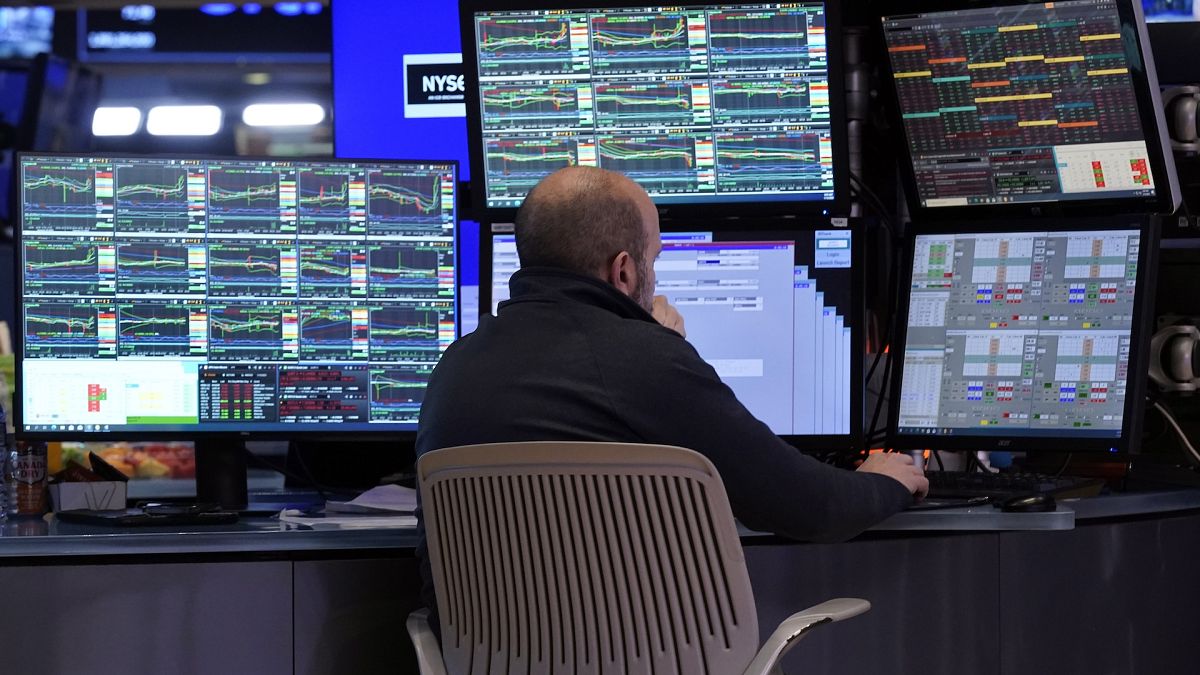European stock markets continued their climb, with the DAX repeatedly reaching new highs this week. Performance was driven by expectations of loosening monetary policy and strong corporate quarterly earnings.
Global stock markets are poised to end the week on a positive note, buoyed by cooling inflation and robust quarterly earnings on both sides of the Atlantic. European stock markets outperformed their US counterparts, most likely because of expectations of a more accommodative policy stance from the European Central Bank compared with the Federal Reserve.
The US dollar retreated from a two-year high, lifting other currencies and boosting metal prices. Global government bond yields also declined from recent highs, supported by lower-than-expected CPI readings from the US and the UK. Optimistic sentiment prevailed ahead of Donald Trump’s inauguration on Monday and the release of major corporate earnings reports for the remainder of the month.
Europe
Major European benchmarks recorded weekly gains, with the pan-European Stoxx 600 Index up 0.81%, the DAX rising 2.18%, the CAC 40 climbing 2.74%, and the UK’s FTSE 100 gaining 1.74%. The Euro Stoxx 600 is only 1.5% from its all-time high of €528 in September 2024. Germany’s DAX repeatedly hit new highs during the past two trading sessions, driven by broad-based gains. The French market also performed strongly, supported by luxury goods stocks.
On a weekly basis, most sectors in the Euro Stoxx 600 posted gains, led by consumer cyclicals, technology, and financials, each rising more than 2%. European luxury stocks surged following Richemont’s positive quarterly earnings. Shares of the Swiss company soared more than 16% to a record high on Thursday, lifting rival stocks. Over the week, LVMH rose 7.33%, Hermès climbed 4.33%, and Kering advanced 3.63%, contributing to a 6.8% weekly gain in the Euro Stoxx 600 Luxury 10 Index.
Technology shares rallied on optimism surrounding central bank policies, with ASML up 3.9% and SAP climbing 4.2% for the week. The banking sector also showed strength, supported by strong earnings from major US banks last week. HSBC shares rose 3% to their highest level since 2007 after Bloomberg reported the bank’s plans to cut bonuses as part of ongoing restructuring efforts. BNP Paribas gained 4.4%, and UBS advanced 1.7% week-on-week.
Shares of oil and gas producers extended gains, driven by a recent surge in energy prices. BP announced plans to cut 5% of its workforce, or approximately 4,700 positions, as part of cost-cutting measures. The company’s shares rose 2.3% for the week.
On the economic front, Germany’s economy contracted by 0.2% in 2024, marking its second consecutive year of decline. In the UK, December inflation came in lower than expected, providing relief to British markets. Gilt yields declined sharply after reaching more than a decade high last week.
Wall Street
US stock markets posted strong weekly gains following cooler-than-expected core inflation data for December. Over the past five trading days, the Dow Jones Industrial Average rose 2.9%, the S&P 500 gained 1.89%, and the Nasdaq Composite advanced 0.92%. The small-cap Russell 2000 surged 3.51%, supported by hopes of further Federal Reserve rate cuts.
In the S&P 500, 10 out of 11 sectors posted weekly gains, led by materials, industrials, and financials, which rose 4.2%, 3.6%, and 3.5%, respectively. Consumer staples was the only sector in negative territory, down 1.2% for the week due to weakened demand for haven assets.
On the economic front, core inflation (excluding volatile items such as food and energy) fell to 3.2% year-on-year in December, down from 3.3% in November. Headline inflation remained at 2.9% annually, in line with expectations. The data increased the likelihood of further rate cuts by the Federal Reserve this year, though futures contracts indicate no change in the upcoming meeting later this month.
China
China’s fourth-quarter GDP grew by 5.4% year-on-year, exceeding the forecasted 5.0% and accelerating from 4.6% in the third quarter. This brought China’s full-year economic growth to 5%, meeting the government’s target.
Other key December data also outperformed expectations, with industrial production up 6.2% and retail sales increasing 3.7% year-on-year, compared with estimates of 5.4% and 3.5%, respectively. The positive data suggests Beijing’s stimulus measures may be taking effect. However, China’s National Bureau of Statistics warned of rising external pressures and insufficient domestic demand.
Chinese stock markets broadly gained this week, reflecting global trends. Key benchmarks, including the Hang Seng Index, the Shanghai Composite Index, and the Shenzhen Component Index, rose more than 2% for the week.

